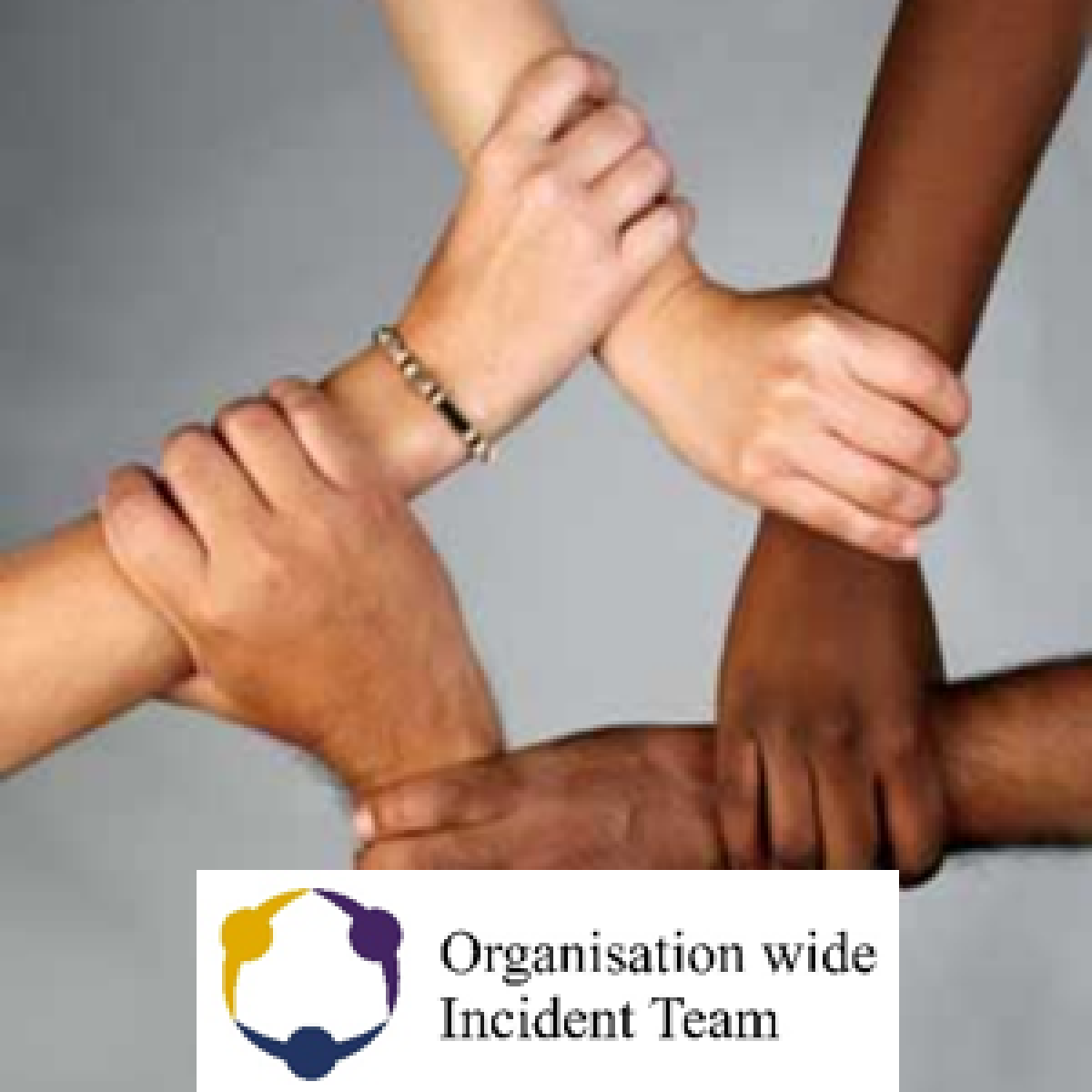
Organisation wide Incident Team
The NetherlandsSummary
Contact person:
Description of best practice:
In our work we are sometimes confronted with unpredictable behavior, incidents and other types of threatening situations. It demands a lot from employees to be able to respond to this in a proper way.
The Organisation wide Incident Team (KCT) is a partnership of COA, IND and DT&V, all government services that work within the immigration range, being part of the Department of the Dutch Ministry of Justice and Security. The KCT is deployed to de-escalate if the following situations apply
- Suicide threat
- Suicide attempt
- Hunger or / and thirst strike
- Other self-destructive behavior (self-mutilation/self-harm)
We bring all necessary information together and based on that we provide advice to the involved employees, either we plan a conversation with the client and try to de-escalate the situation that has occurred.
Target group:
Asylum seekers with the treat of escalation.
Why is this in your view a best practice that others should follow?
In the past, in case of one particular investigated suicide, is concluded that this suicide could probably have been avoided if all the involved employees would have been fully informed about the psychological problems the asylum seeker was suffering. By realizing this organisation wide team we can ensure that all the necessary information reaches the involved employees to prevent incidents like suicide and other self-destructive behavior.
We also are trained in a diversity of conversation techniques so that we can support and advise the employees who take care of the daily guidance of the asylum seekers. As mentioned above, in extreme cases, we speak with the asylum seeker, in the hope to de-escalate the situation.
Besides this, we spot and monitor trends and advice the staff of the three organisations how to prevent incidents and escalations.
Methods & results
Aim/issue:
To prevent and de-escalate incidents of suicide threats or attempts, hunger / thirst strikes and other self-destructive behavior.
Parties involved:
COA, responsible for reception and guiding
IND, responsible for the juridical procedure to grant or to refuse a residence permit
DT&V, responsible for the return of asylum seekers without permit to stay
Context:
Mental health is a complex thing which can be influenced by many circumstances.
Asylum seekers in particular have to deal with some of these circumstances which might influence their mental health in a negative way. For example they have to deal with the fact that, at some degree, they depend on others. This while they might have been independent in the past. They might experience a certain level of uncertainty about their future and many of them have experienced traumatizing events. Besides that, most of them have to adapt to another culture and, in the case of people living together in an asylum seekers camp, they have to adapt to many other people and cultures. The fact, that incidents caused by mental health issues occur in this group is not that surprising.
Elaborate description of implementation of practice:
We consist of a team of 9 employees of all three organisations mentioned. Although we do not have any psychological background, we are all experienced in working with asylum seekers and are well motivated to improve the wellbeing of our target group.
We are trained in conversation techniques as well in dealing with self-destructive behavior.
By providing information, we are constantly working on our brand awareness.
We are available 7 days a week, from 09:00 to 17:00.
Challenges, risks:
- Lack of receiving relevant information.
We depend on the employees to notify us about relevant signals. Every employee has his own perspective. For this reason proper education is needed, as the concerned employee knows when, and what needs to be reported. As all organisations involved are subject of constant change we need to be visible.
Results:
Less escalations and incidents.
Preconditions
ICT: We all have access to a central mailbox where incidents can be reported and registrated.
Other means:
- Time: We all work part-time for this organisation wide incident team and part-time for our individual organisations.
- Knowledge: We invest in ourselves by continuous training and courses, intervision and workshops.
Who works on the project:
- 1 manager
- 3 colleagues from the COA
- 3 colleagues from the DT&V
- 3 colleagues from the IND
Costs:
Time investment: most colleagues work an average of 16 hours a week for this project which makes it 9x16= approximately 144 hours a week.
Costs of courses and trainings.


